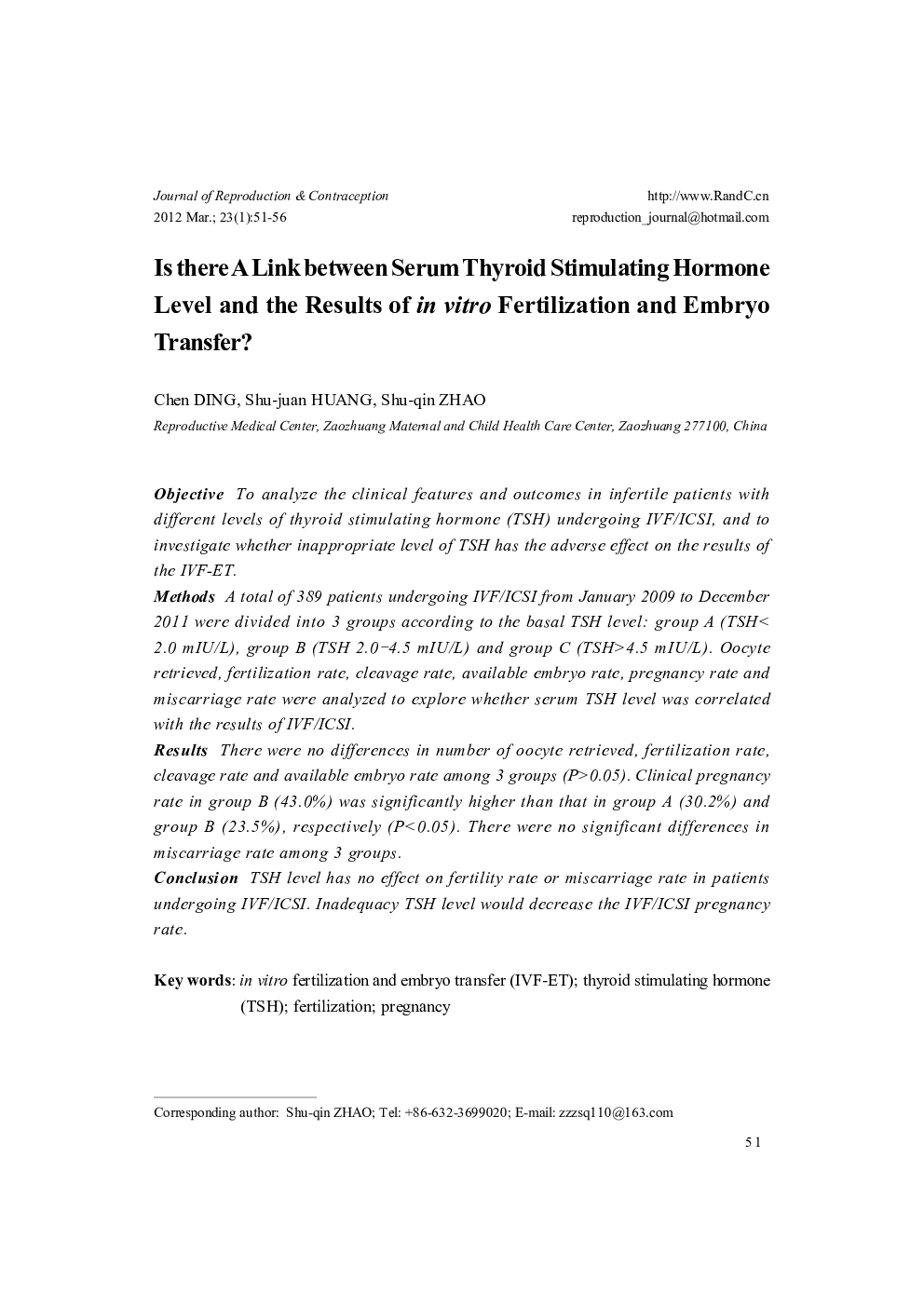| Article ID | Journal | Published Year | Pages | File Type |
|---|---|---|---|---|
| 3963420 | Journal of Reproduction and Contraception | 2012 | 6 Pages |
ObjectiveTo analyze the clinical features and outcomes in infertile patients with different levels of thyroid stimulating hormone (TSH) undergoing IVF/ICSI, and to investigate whether inappropriate level of TSH has the adverse effect on the results of the IVF-ET.MethodsA total of 389 patients undergoing IVF/ICSI from January 2009 to December 2011 were divided into 3 groups according to the basal TSH level: group A (TSH< 2.0 mIU/L), group B (TSH 2.0-4.5 mIU/L) and group C (TSH>4.5 mIU/L). Oocyte retrieved, fertilization rate, cleavage rate, available embryo rate, pregnancy rate and miscarriage rate were analyzed to explore whether serum TSH level was correlated with the results of IVF/ICSI.ResultsThere were no differences in number of oocyte retrieved, fertilization rate, cleavage rate and available embryo rate among 3 groups (P>0.05). Clinical pregnancy rate in group B (43.0%) was significantly higher than that in group A (30.2%) and group B (23.5%), respectively (P<0.05). There were no significant differences in miscarriage rate among 3 groups.ConclusionsTSH level has no effect on fertility rate or miscarriage rate in patients undergoing IVF/ICSI. Inadequacy TSH level would decrease the IVF/ICSI pregnancy rate.
